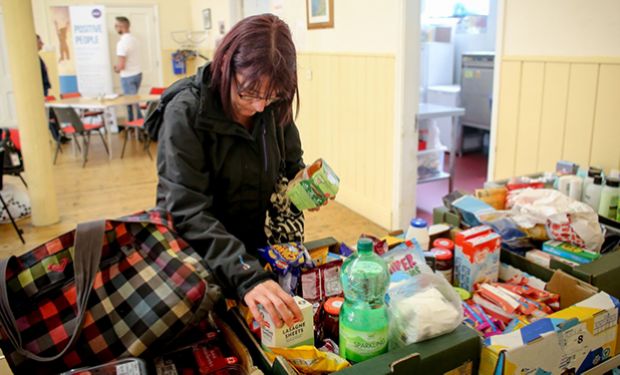New analysis from the Joseph Rowntree Foundation show worrying signs that the cost-of-living crisis for low-income families has entered a dangerous new phase for people whether they have a mortgage or not.
Low income families are paying hundreds in interest on loans taken out to help them including those to help with the rising cost of living. Even without a mortgage, these households are incredibly exposed to rising interest rates.
Nearly six million low-income familieshad unsecured debt (personal loans from banks and credit unions, credit cards, overdraft facilities, payday lenders and licensed doorstep loans) as of May 2023
In total, they had around £14.2 billion in unsecured debt (personal loans, credit cards, overdraft facilities, pay-day lenders and licensed doorstep loans) between them as of May 2023, around £2,500 on average per family
As of May 2023, tbey estimate an annualised cost of paying interest on this debt at around £3.9 billion, or around £680 per household on average
Their research shows a fifth of low-income families – 2.3 million – need to take on new lending just to pay their rent or energy bills.
Almost all households who reported using credit to pay for bills during the cost of living crisis (92%) are going without at least one essential. Over half (53%) are going without three or more essentials. Over 8 in 10 experienced food insecurity in April/May
Using credit to pay the bills isn’t stopping households from falling into arrears with their bills.
Three quarters report being in arrears with at least one household bill or lending commitment, and 44% are in arrears with three or more bills
Alfie Stirling, JRF Chief Economist, said:
“We are at risk of sleepwalking into a second wave of avoidable crisis, leaving more families unable to pay their bills for longer. As the pace of price increase on essentials begins to slow down, family finances are now in peril due to the rising cost of money itself. For many, what small respite might be gained from energy and fuel prices stabilising will be lost through rising costs for credit cards, overdrafts and mortgages.
“The 2020s so far has been defined by a continued lurch from one economic crisis to the next. Each demonstrates the UK’s deeper underlying fragilities and the failure across consecutive governments to build up and spread different forms of economic security, including income safety nets, public services, housing and energy generation and efficiency. The next few months could mark a turning point in how the decade is remembered, but it requires a new course to end continuing insecurity.”







